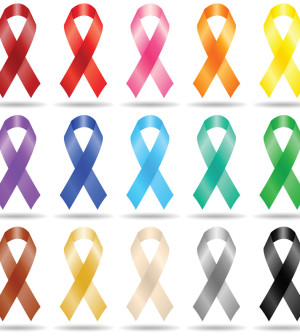- Could Your Grocery Store Meat Be Causing Recurring UTIs?
- Are You Making This Expensive Thermostat Error This Winter?
- Recognizing the Signs of Hypothyroidism
- 10 Strategies to Overcome Insomnia
- Could Artificial Sweeteners Be Aging the Brain Faster?
- Techniques for Soothing Your Nervous System
- Does the Water in Your House Smell Funny? Here’s Why
- Can a Daily Dose of Apple Cider Vinegar Actually Aid Weight Loss?
- 6 Health Beverages That Can Actually Spike Your Blood Sugar
- Treatment Options for Social Anxiety Disorder
Many Ignore Cancer’s Warning Signs, Survey Finds


Many people ignore potential warning signs of cancer, a new British survey found.
The study involved 1,700 people aged 50 and older in the United Kingdom who completed a health questionnaire listing 17 symptoms, including 10 widely publicized possible cancer symptoms. The symptoms included unexplained cough, bleeding, or significant changes in bowel or bladder activity.
While 53 percent of the participants said they had experienced at least one of the potential cancer symptoms in the previous three months, only 2 percent thought cancer was a possible cause of those symptoms.
In many cases, people attributed potential signs of cancer to reasons such as age, infection, arthritis, cysts and hemorrhoids, according to the Cancer Research U.K.-funded survey. It was published Dec. 2 in the journal PLOS One.
“Most people with potential warning symptoms don’t have cancer, but some will and others may have other diseases that would benefit from early attention,” lead author Dr. Katriina Whitaker, senior research fellow at University College London, said in a Cancer Research U.K. news release.
“That’s why it’s important that these symptoms are checked out, especially if they don’t go away. But people could delay seeing a doctor if they don’t acknowledge cancer as a possible cause,” Whitaker added.
“It’s worrying that even the more obvious warning symptoms, such as unexplained lumps or changes to the appearance of a mole, were rarely attributed to cancer, although they are often well-recognized in surveys that assess the public’s knowledge of the disease,” she said.
Sara Hiom, director of early diagnosis at Cancer Research U.K., said in the news release: “Diagnosing cancer early saves lives because it gives patients a better chance that treatments will be successful.”
More information
The U.S. National Cancer Institute has more about cancer detection and screening.
Source: HealthDay
Copyright © 2026 HealthDay. All rights reserved.










